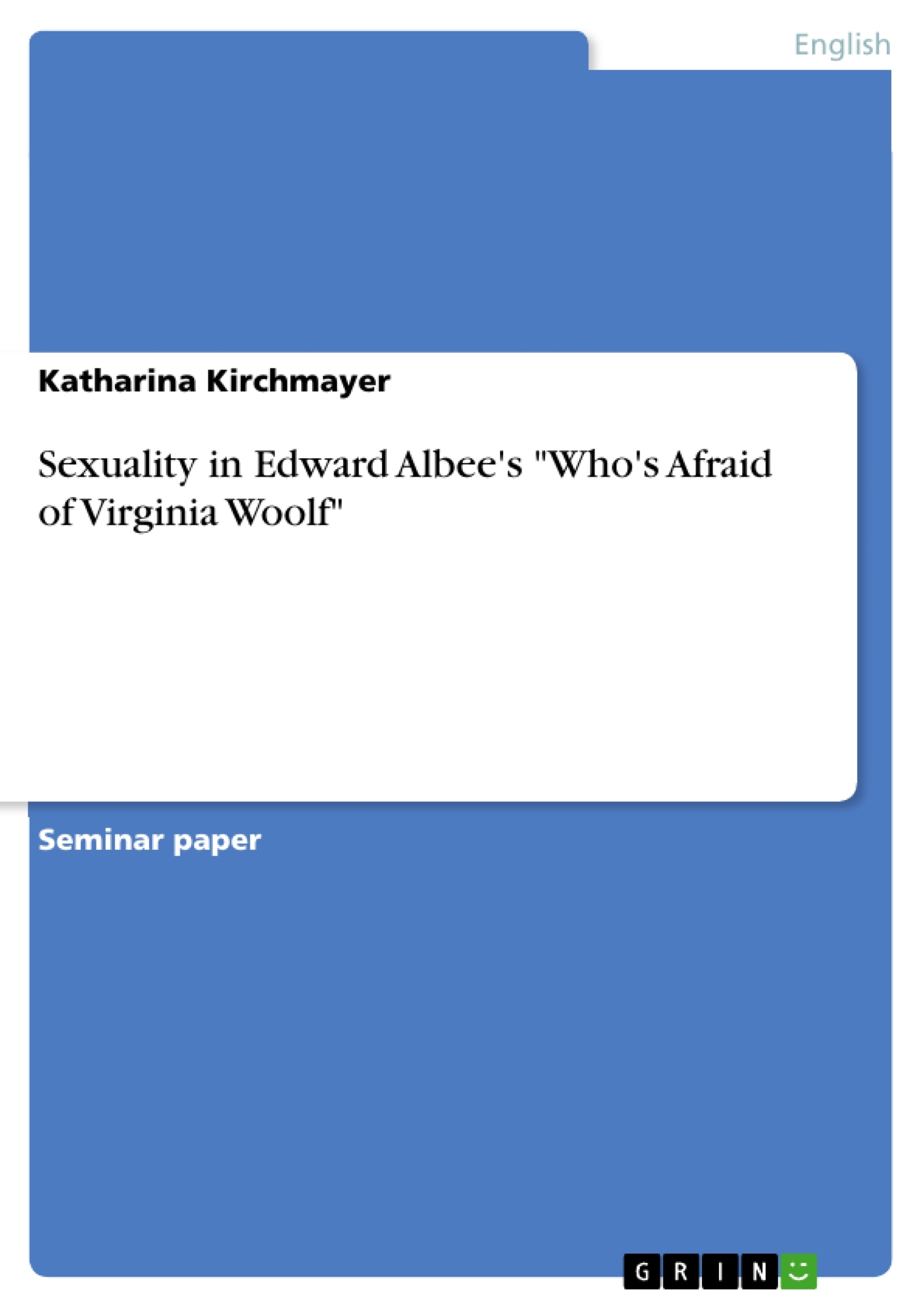''I don't want to kiss you, Martha.''
George in Who is Afraid of Virginia Woolf
This turns out to be quite a significant statement by George in Edward Albee´s drama Who´s Afraid of Virginia Woolf , giving an idea of the unemotional and passionless relationship between him and his wife Martha. By investigating the play, many scenes and indication to hidden sexuality can be encountered. In addition to that the lack of communication within the two couples, originating from two different generations, result in a complete incapability of managing their relationships.
This paper examines how Edward Albee, by highlighting themes of sexuality, reveals general frustrations in life. Frustrated, unsatisfied marriage is a central theme in Albee's Who is Afraid of Virginia Woolf and will be investigated by means of dissecting scenes and certain passage of importance.
Table of Contents
- Introduction
- The Language Style
- The sexual context of the Setting
- Analysis
- Acts
- The characters' attitude towards Sexuality
- Selected Scenes with sexual connotations
- Conclusion
- Bibliography
Objectives and Key Themes
This paper examines how Edward Albee, by highlighting themes of sexuality, reveals general frustrations in life. The main objective is to investigate how Albee presents themes of sexuality and frustration in his play, "Who's Afraid of Virginia Woolf," by dissecting specific scenes and passages.
- The portrayal of sexuality and marital problems in a post-war America.
- The role of language and humor in expressing frustration and sexual tension.
- The impact of setting and societal context on the characters' relationships.
- The use of symbolism and irony to explore the complexities of human relationships.
- The contrasting attitudes towards sexuality between the characters.
Chapter Summaries
The introductory chapter sets the stage for the analysis by highlighting George's statement, "I don't want to kiss you, Martha," as a reflection of the unemotional and passionless relationship between him and his wife. The chapter also introduces the play's historical context and its significance within American dramatic history.
Chapter two focuses on the linguistic style of the play, emphasizing the use of irony, sarcasm, and black humor. It highlights the harsh and aggressive language with sexual connotations, particularly in the dialogue between Martha and George, which is described as extravagantly absurd.
Chapter three explores the sexual context of the play's setting, which is placed in a post-war era of unrest. Albee criticizes the idealized American way of life and the illusion of a happy family. The setting of a small New England college provides a backdrop for the characters' struggles with societal expectations and traditional values.
Chapter four begins the analysis of the play, diving into the three acts: "Fun and Games," "Walpurgisnacht," and "The Exorcism." The chapter explores the sexual allusions found throughout the acts, particularly in "Walpurgisnacht," which signifies the characters' engagement in wickedness and the climax of sexual tension.
Keywords
This paper explores key themes of sexuality, frustration, marital problems, language, humor, setting, symbolism, irony, and contrasting attitudes towards sexuality in the context of Edward Albee's play, "Who's Afraid of Virginia Woolf." The analysis focuses on the characters' relationships, their dialogue, and the play's cultural and historical significance.
- Quote paper
- Mag. Katharina Kirchmayer (Author), 2009, Sexuality in Edward Albee's "Who's Afraid of Virginia Woolf", Munich, GRIN Verlag, https://www.grin.com/document/152056



